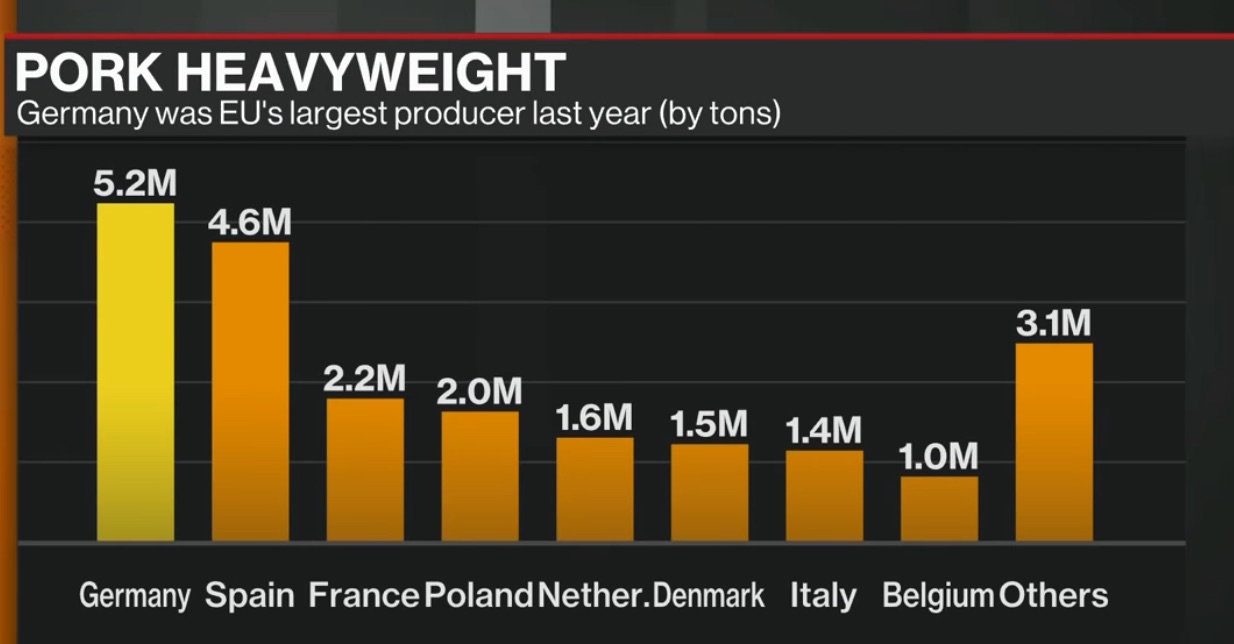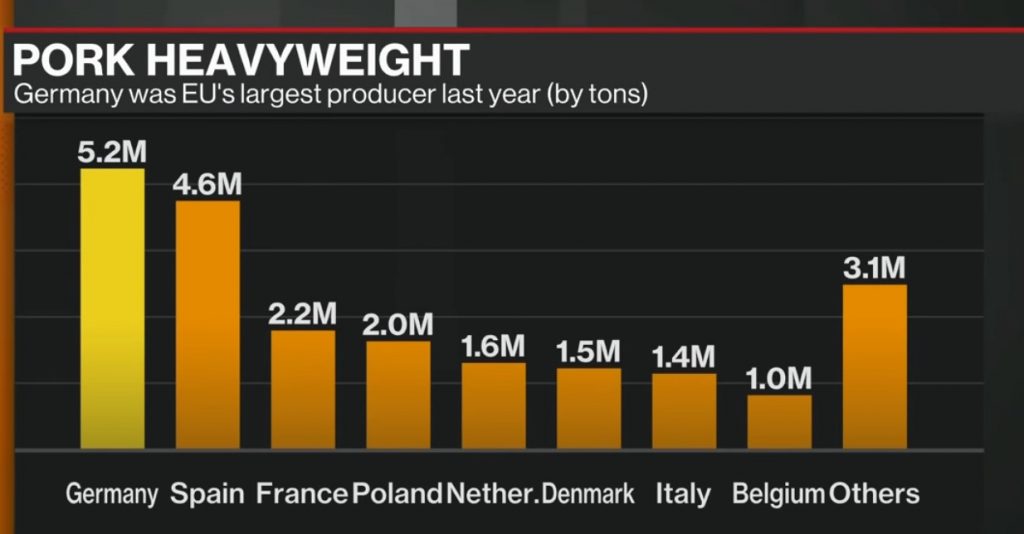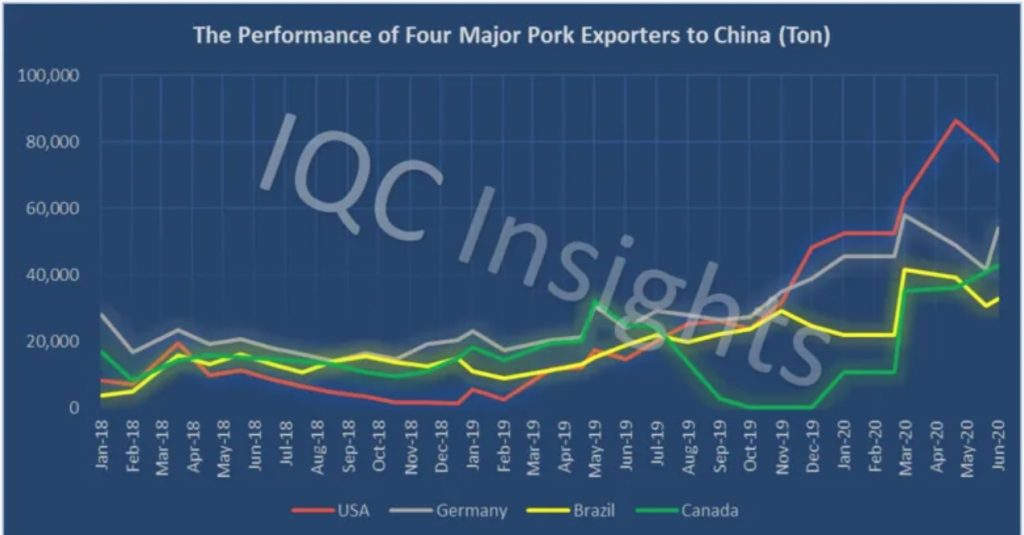
Germany found six dead wild boar infected with African Swine Fever
Despite all the measures taken by Germany at the Polish border, the virus of ASF finally reached its territory after the analysis conducted on six wild boar carcasses. Germany is now reinforcing the measures to contain the ASF infection within its territory.
So far, the infections have been on wild boards, not affecting any pig farm. Germany has high biosecurity technology and measures in place to keep wild boars again from piggeries, but the risk remains latent.
Impact of the African Swine Fever infection in Germany in the pigmeat trade

Germany is the largest pork producer in Europe. Since the ASF infection confirmation, China and all the other non EU countries banned pigmeat imports from Germany.
The collapse in foreign demand caused german pork price to deteriore as much as 15% in the domestic market.
China pigmeat imports from Germany were banned

Since the last September 2020 ban on pigmeat imports from Germany, the US has consolidated as the undisputed market leader, also helped by the Phase I on the Trade Agreement between China and US (who is mostly exporting pork and soybeans to China). Brasil and Canada, in addition to the US, are the lucky winners of this tragic situation.
China is estimated to need around 4 million tonnes of pigmeat imports in 2020. Due to ASF, China has lost about 20 million tonnes of domestic pork production since the end of 2018.
Before the ban for German pork, in September 2020, the pigmeat price in China was already 100% more expensive than before the ASF outbreak. This additional lack of supply may cause an additional price hike, especially considering the upcoming Chinese New Year celebration of February 2021, when demand peaks.
China is accelerating the import of alternative meats, especially beef to try to control pork price increases. China is expected to import a record amount of beef in 2020, reaching over 80% of pigmeat imports.